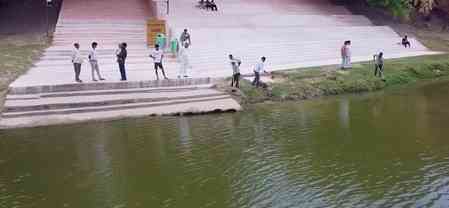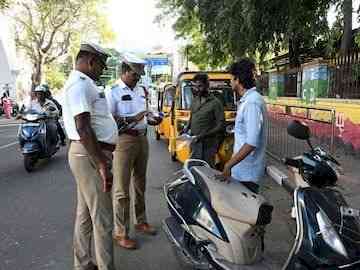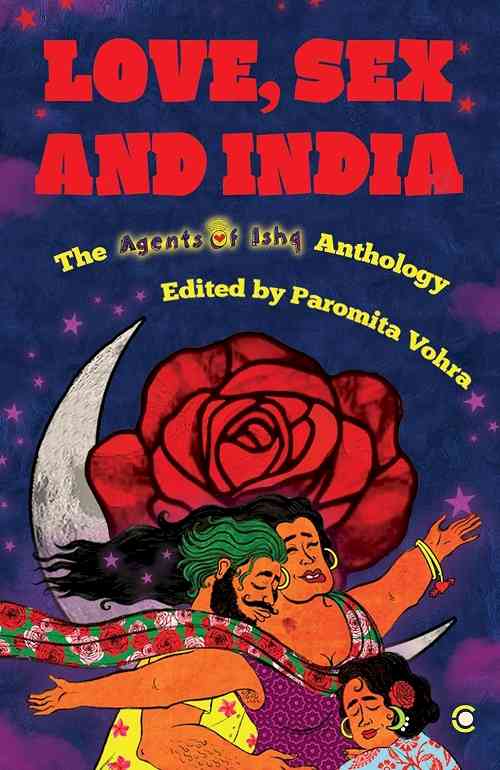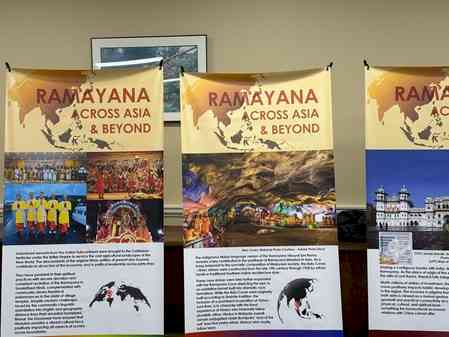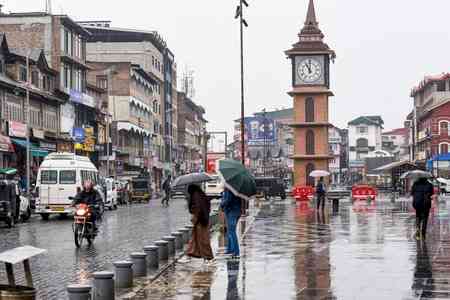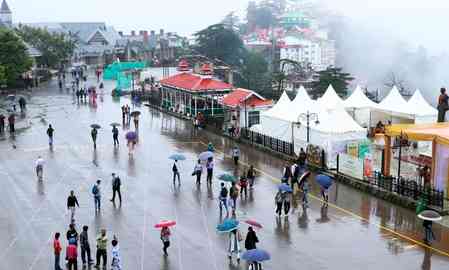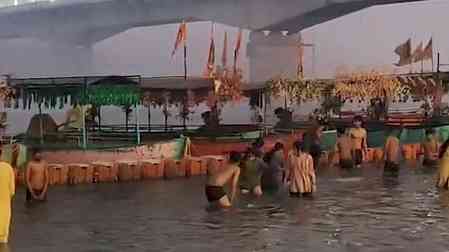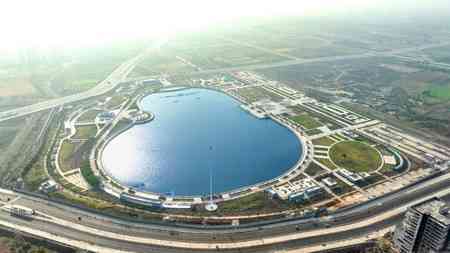FairPoint: Omar vs Mehbooba - How Kashmir's dynasts flip on India and Pakistan
An amusing side effect of Operation Sindoor is being felt in Kashmir, where two prominent political parties are trying to expose each other's allegiance to the country.
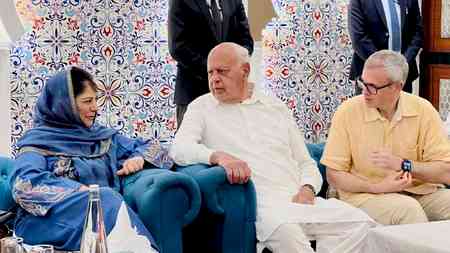
Deepika Bhan
New Delhi, May 18 (IANS) An amusing side effect of Operation Sindoor is being felt in Kashmir, where two prominent political parties are trying to expose each other's allegiance to the country.
The Abdullahs and the Muftis are two major dynastic families in the valley that have held political sway for most of the time in the erstwhile state, with the former being in power for a longer period.
The two families are known rivals and have been vehemently fighting against each other politically for decades - between Mufti Mohammad Sayeed (from NC to Congress to founding the People's Democratic Party) and Sheikh Abdullah (National Conference); Mufti Sayeed and Farooq Abdullah; and later Mehbooba Mufti and Omar Abdullah. All five leaders have served as Chief Ministers of the erstwhile Jammu and Kashmir, and now NC's Omar Abdullah is the Chief Minister of the Union Territory. He won the first Assembly elections held after the abrogation of Article 370 and the revocation of statehood in August 2019.
Together, the two families have ruled the state for over three decades, clearly exhibiting their political influence in the UT, especially in Kashmir. The leaders have consistently been at loggerheads, except during very brief periods - such as during the Assembly elections in 1996, the Lok Sabha polls in 1998, and the formation of the People’s Alliance for Gupkar Declaration (PAGD) in 2019 (a coalition of political parties seeking the restoration of Article 370 and Article 35A). Except for these moments, the families have remained political rivals.
From political rhetoric to accusations of having links with terrorists and separatists, the fight has now shifted to a contest over who is more loyal to India or harbours softer sentiments for Pakistan. The latest spat, which unfolded on social media, is not merely amusing - it reflects the nature of politics that has played out in J&K, particularly in Kashmir, since 1947.
Omar Abdullah and Mehbooba Mufti inadvertently revealed uncomfortable truths about each other's dynastic politics, which have alternated between pro-and anti-India and pro-and anti-Pakistan stances depending on political convenience.
The public exchange broke out on May 16 between Chief Minister Omar Abdullah and his predecessor, Mehbooba Mufti, on their respective X handles, after the former called for the revival of the Tulbul Navigation project following the suspension of the Indus Waters Treaty. Mufti accused Abdullah of adopting "provocative" measures amid ongoing tensions between India and Pakistan.
What CM Abdullah replied was not shocking in content, but rare in its bluntness for someone holding high office in Kashmir. He said: "Actually, what is unfortunate is that with your blind lust to try to score cheap publicity points and please some people sitting across the border, you refuse to acknowledge that the IWT has been one of the biggest historic betrayals of the interests of the people of J&K. I have always opposed this treaty & I will continue to do so."
The phrase "please some people sitting across the border" was clearly a reference to Pakistan.
Not one to remain silent, Mufti shot back with a stinging post that brought up historical controversies about the NC's political leanings.
She wrote: "Time will reveal who seeks to appease whom. However, it's worth recalling that your esteemed grandfather Sheikh Sahab once advocated for accession to Pakistan for over two decades after losing power. But post being reinstated as Chief Minister, he suddenly reversed his stance by aligning with India."
Although she accused the NC of shifting loyalties for political gain, her own and her party's stances have also changed dramatically over time. She has openly supported separatists, visited the families of terrorists, and repeatedly urged the Indian government to initiate dialogue with Pakistan.
Her father, Mufti Mohammad Sayeed, had once accused Omar Abdullah's father, Dr. Farooq Abdullah, of having links with the terrorist group Jammu Kashmir Liberation Front (JKLF) in the 1980s. Sayeed himself was accused of orchestrating attacks in his home district, Anantnag, against minority Kashmiri Pandits in 1986, soon after the purported desecration of the Al-Aqsa Mosque in Jerusalem on February 3, 1986, and the subsequent reopening of the Ram Janmabhoomi temple in Ayodhya.
Mufti Sayeed went on to become Union Home Minister in 1989, during which time Kashmir witnessed some of the worst terrorist violence targeting Hindus, and also the kidnapping of his daughter. At the time, Farooq Abdullah was the Chief Minister. Several terrorists were released from jail, an act widely seen as a sign of weakness on the part of the Indian government.
The contrasting reactions of the Muftis and Abdullahs were again visible after the abrogation of Article 370, when both warned Delhi of serious consequences from Pakistan and China.
Their apparent soft stance toward Pakistan continues. Even after the April 22 Pahalgam attack, both NC and PDP reiterated the need for dialogue with the neighbouring country. Mehbooba Mufti went a step further by criticising the suspension of the Indus Waters Treaty and saying it should not have happened.
Operation Sindoor has altered the India-Pakistan dynamic, and CM Omar Abdullah now supports suspending the IWT, advocating for new power projects in the Union Territory. However, Mehbooba Mufti, whose party won only three seats in the 2024 Assembly elections, has expressed concern over Delhi’s hardline position.
While the two families continue their public feud, long-hidden facts are beginning to surface. It has taken over three decades and Operation Sindoor for the Abdullahs and Muftis to reveal some uncomfortable truths. A lot remains buried in the dark corners of Kashmir’s politics and violence. If only the ethnic cleansing of Kashmiri Pandits had been thoroughly investigated, the fight against Pakistan’s terror networks in and outside Kashmir might have been far easier. (Deepika Bhan can be contacted at [email protected])


 IANS
IANS 
